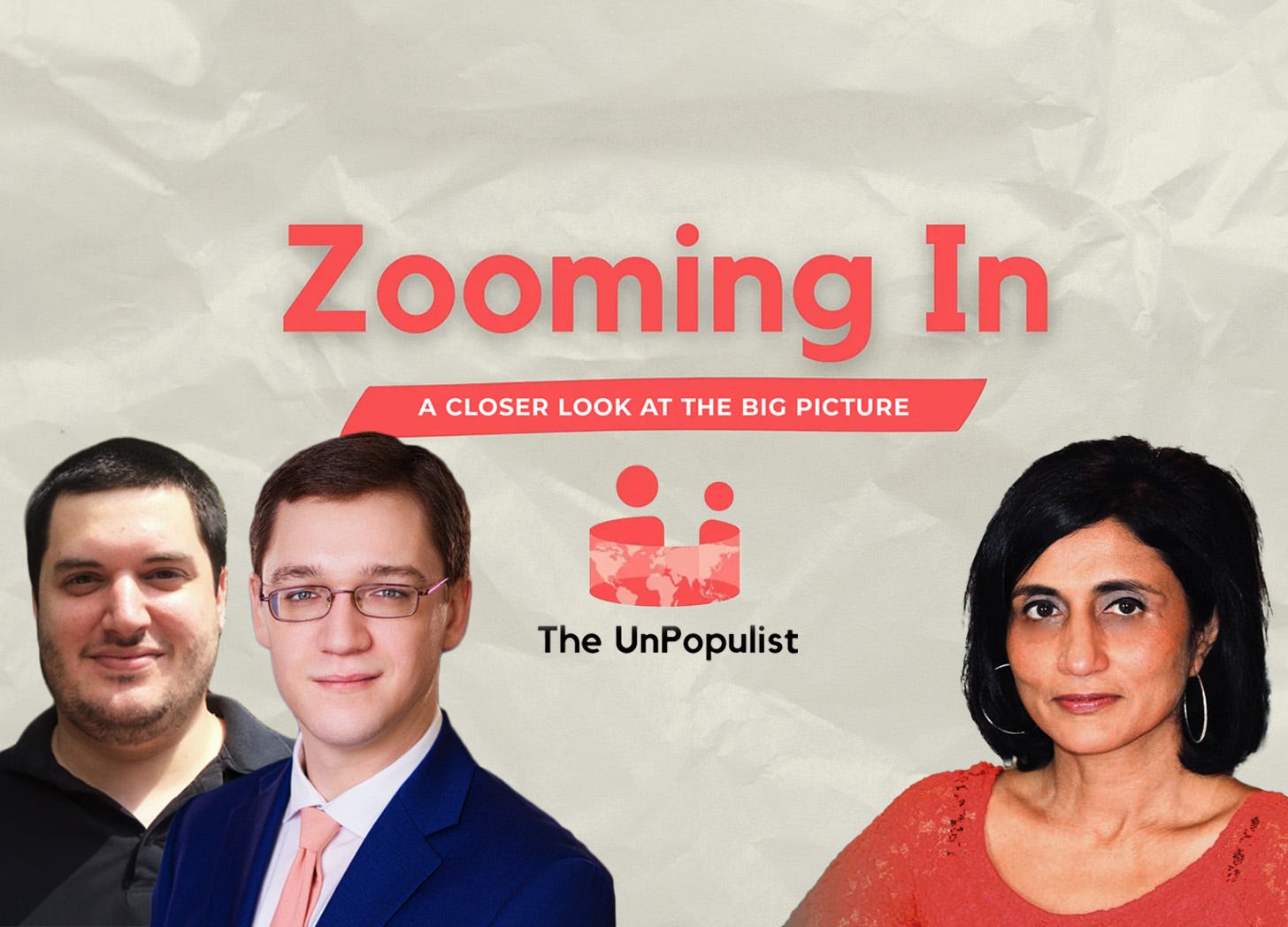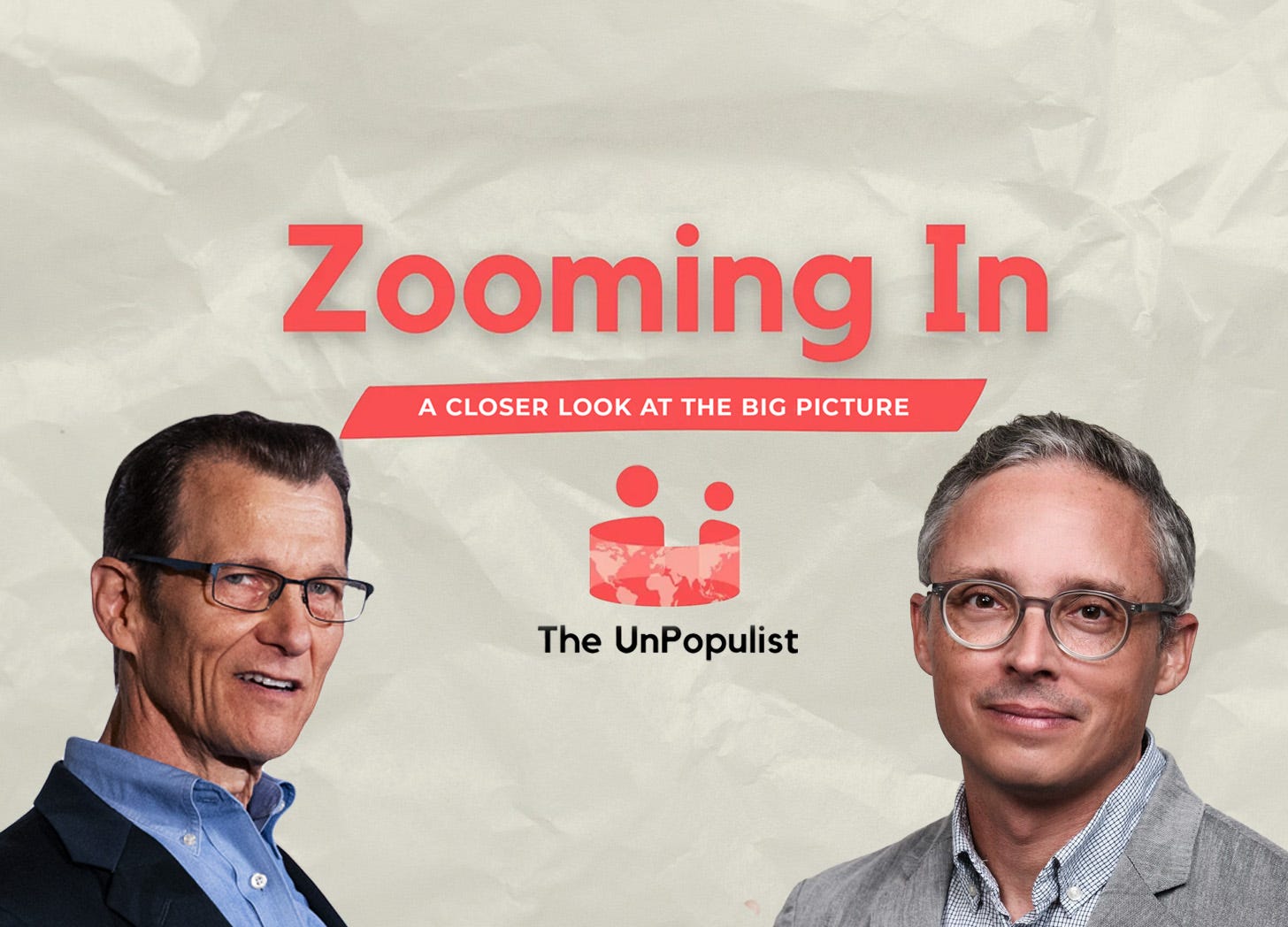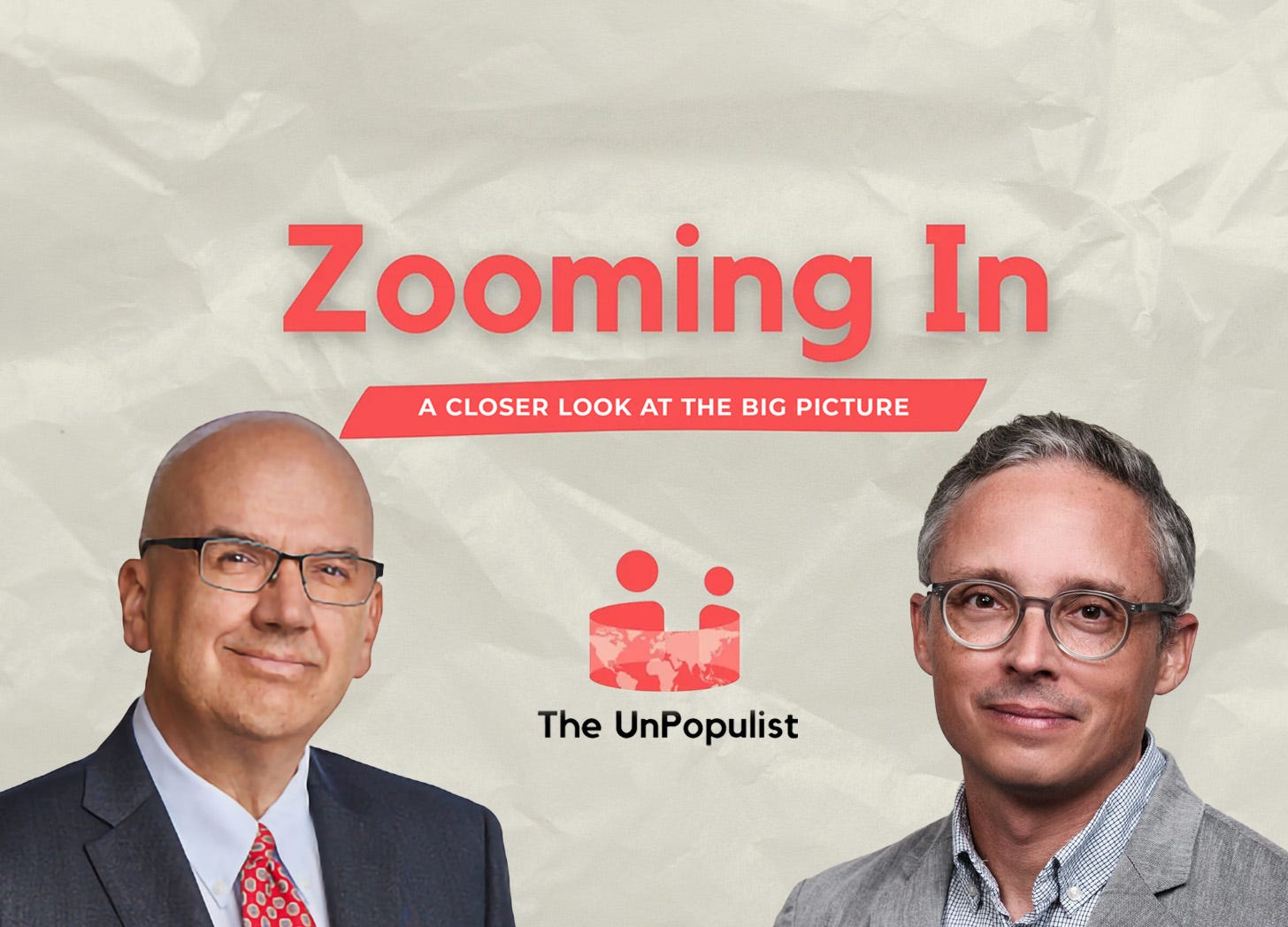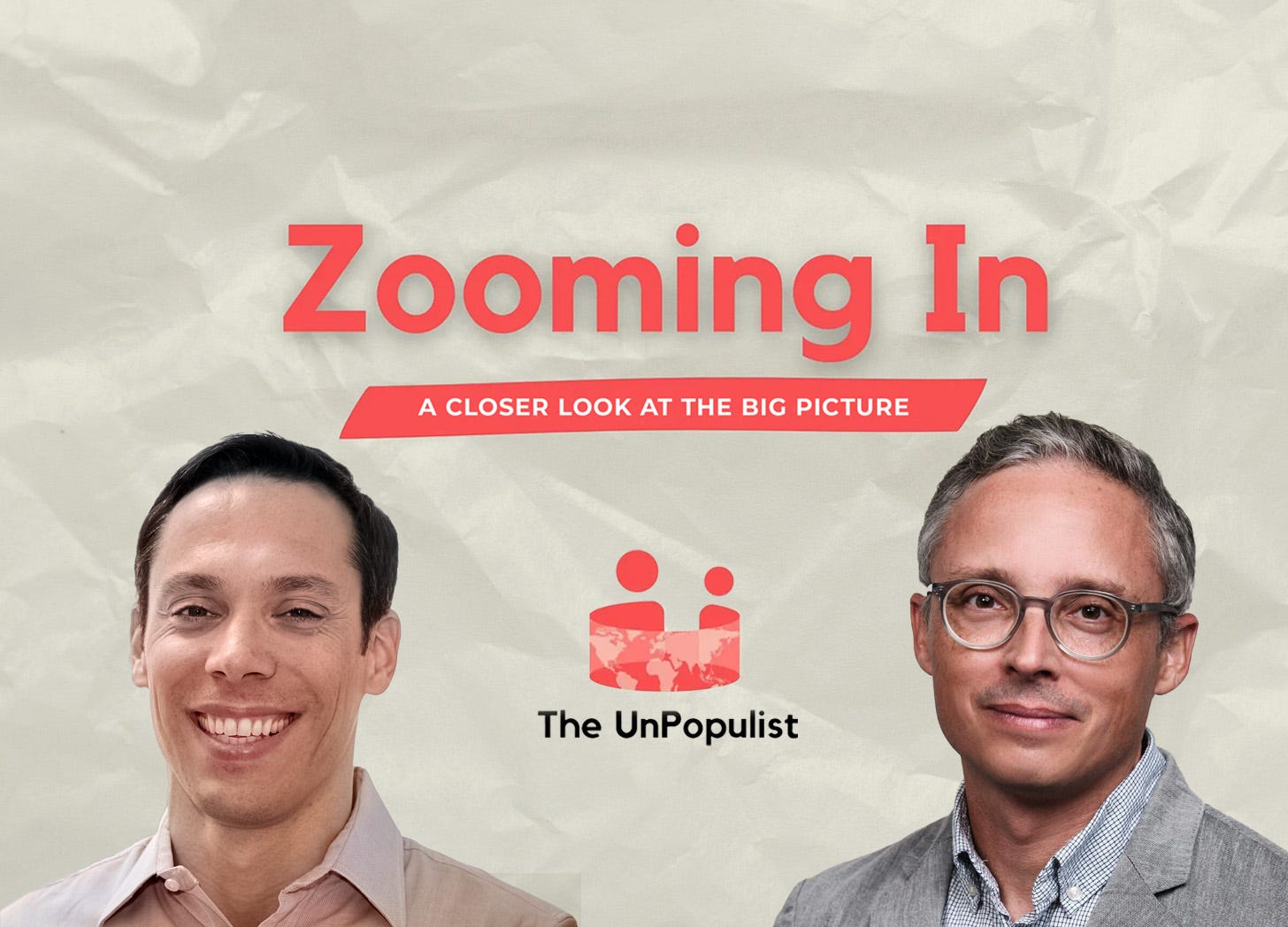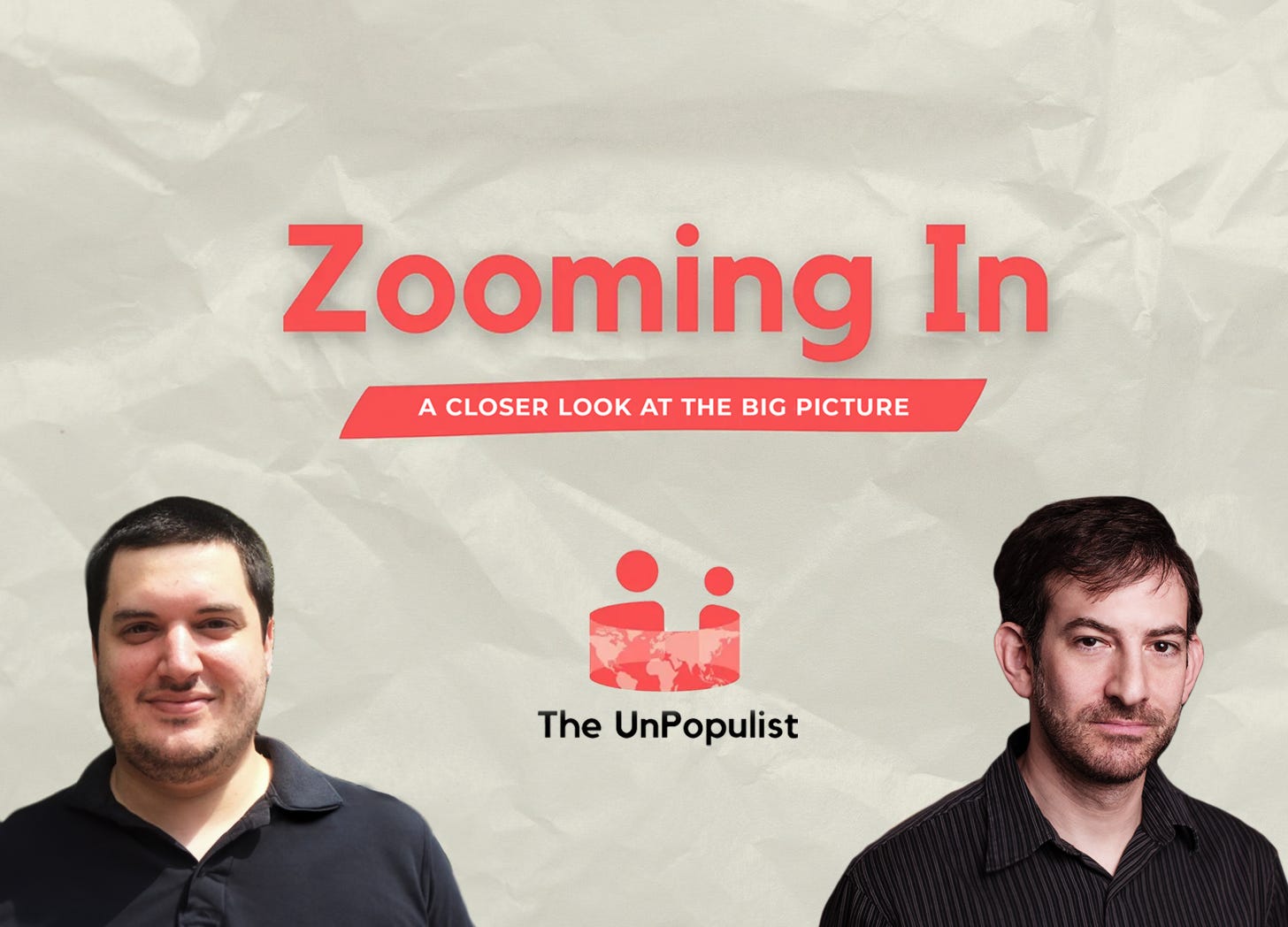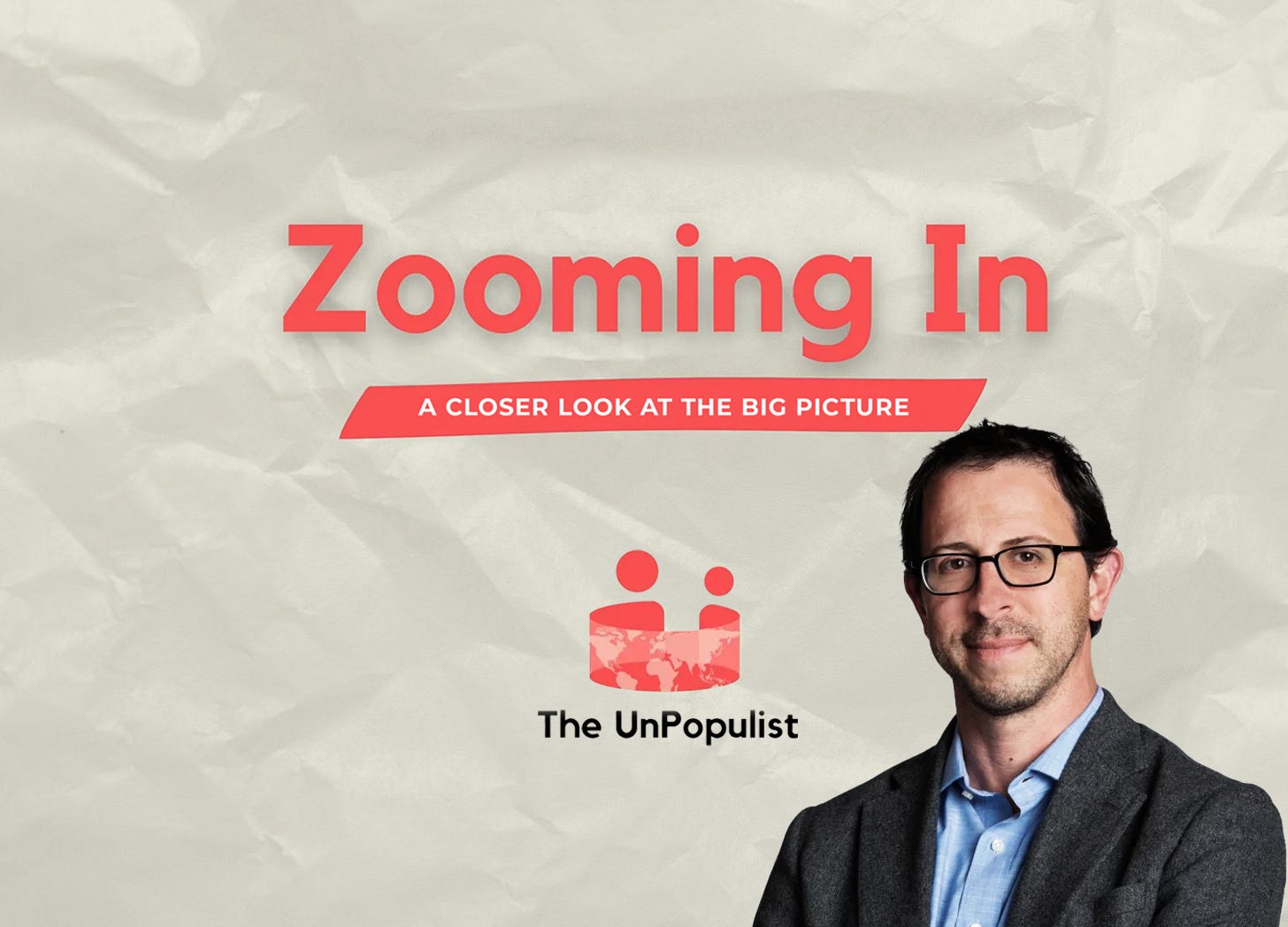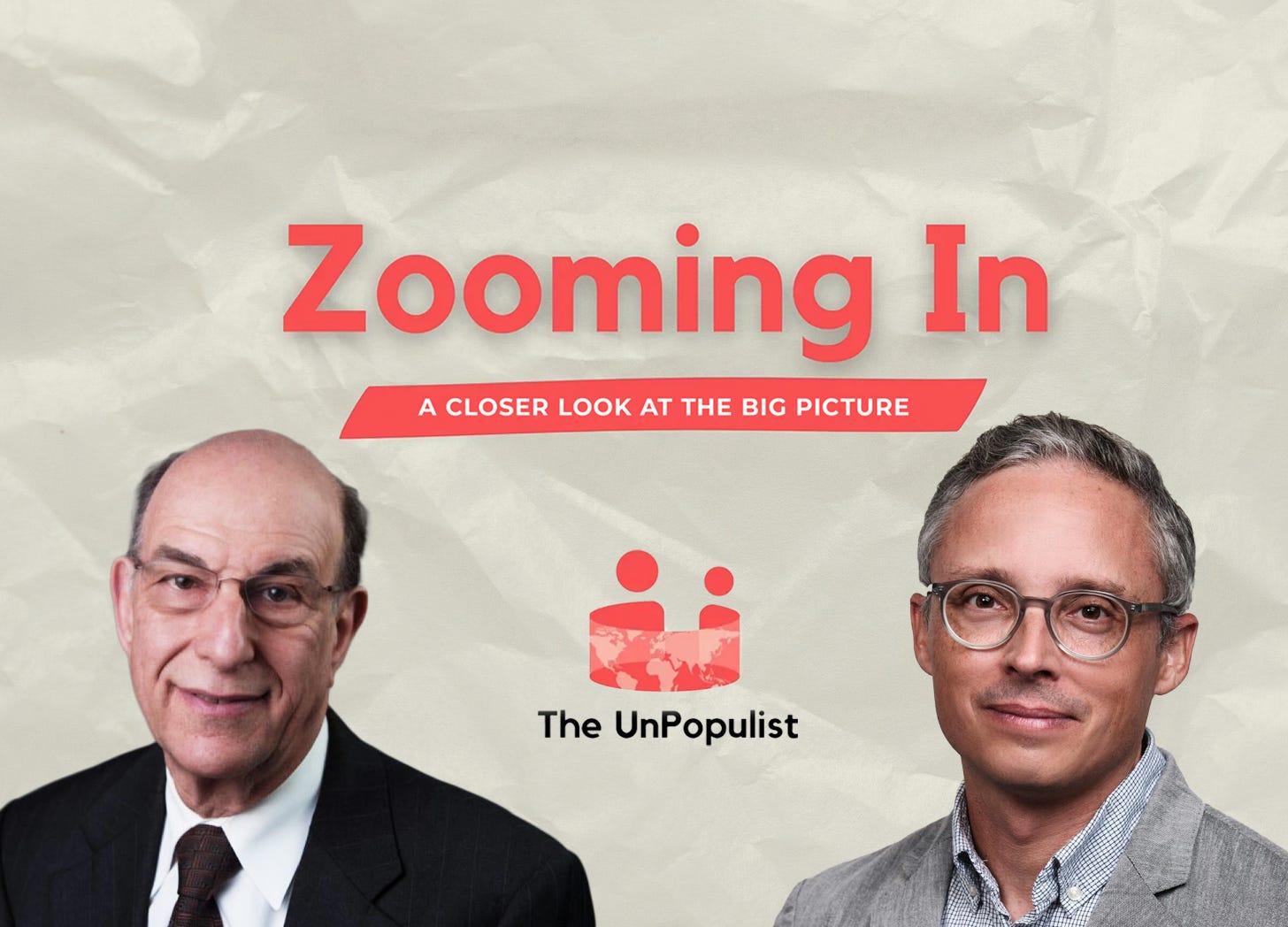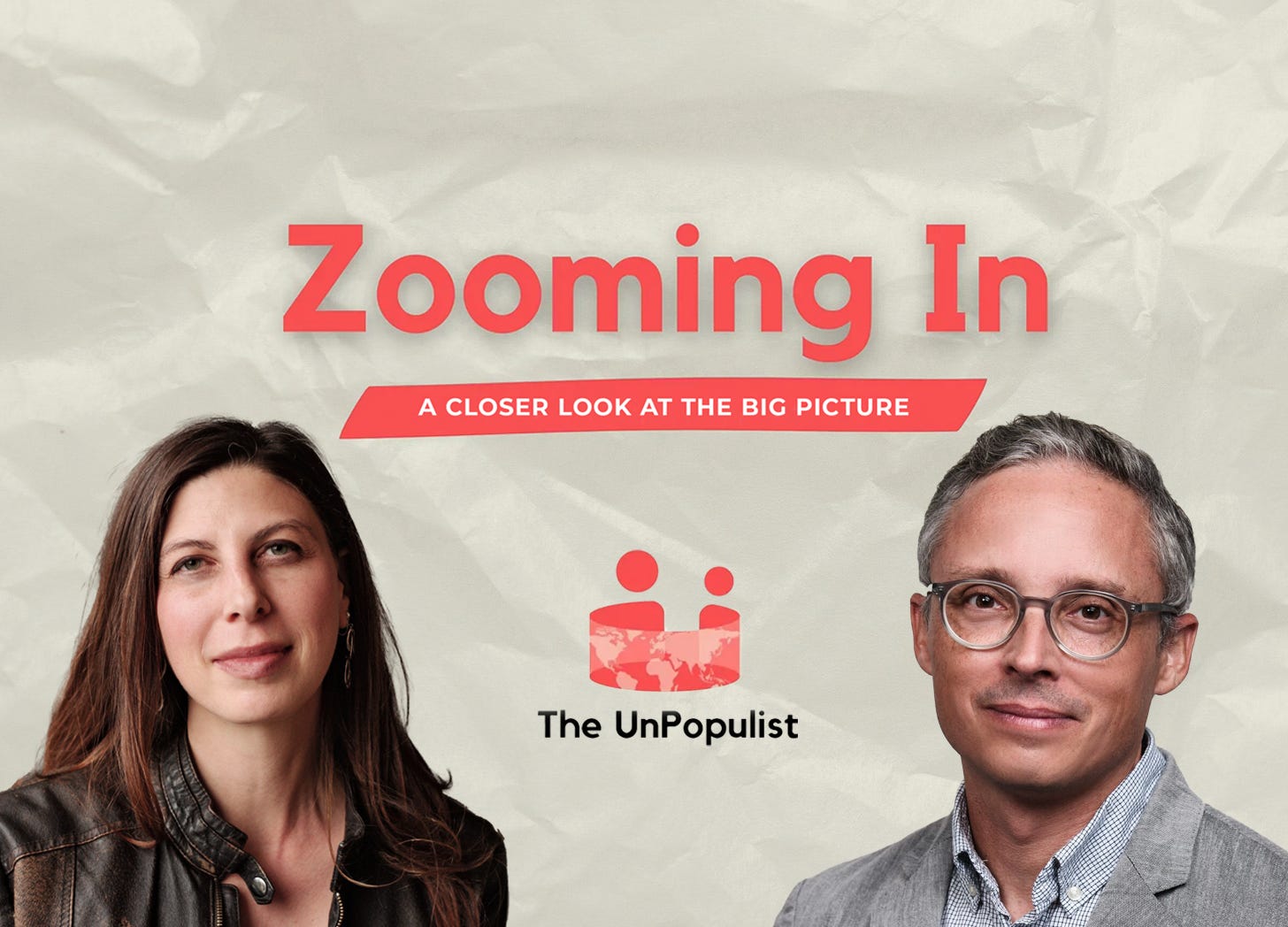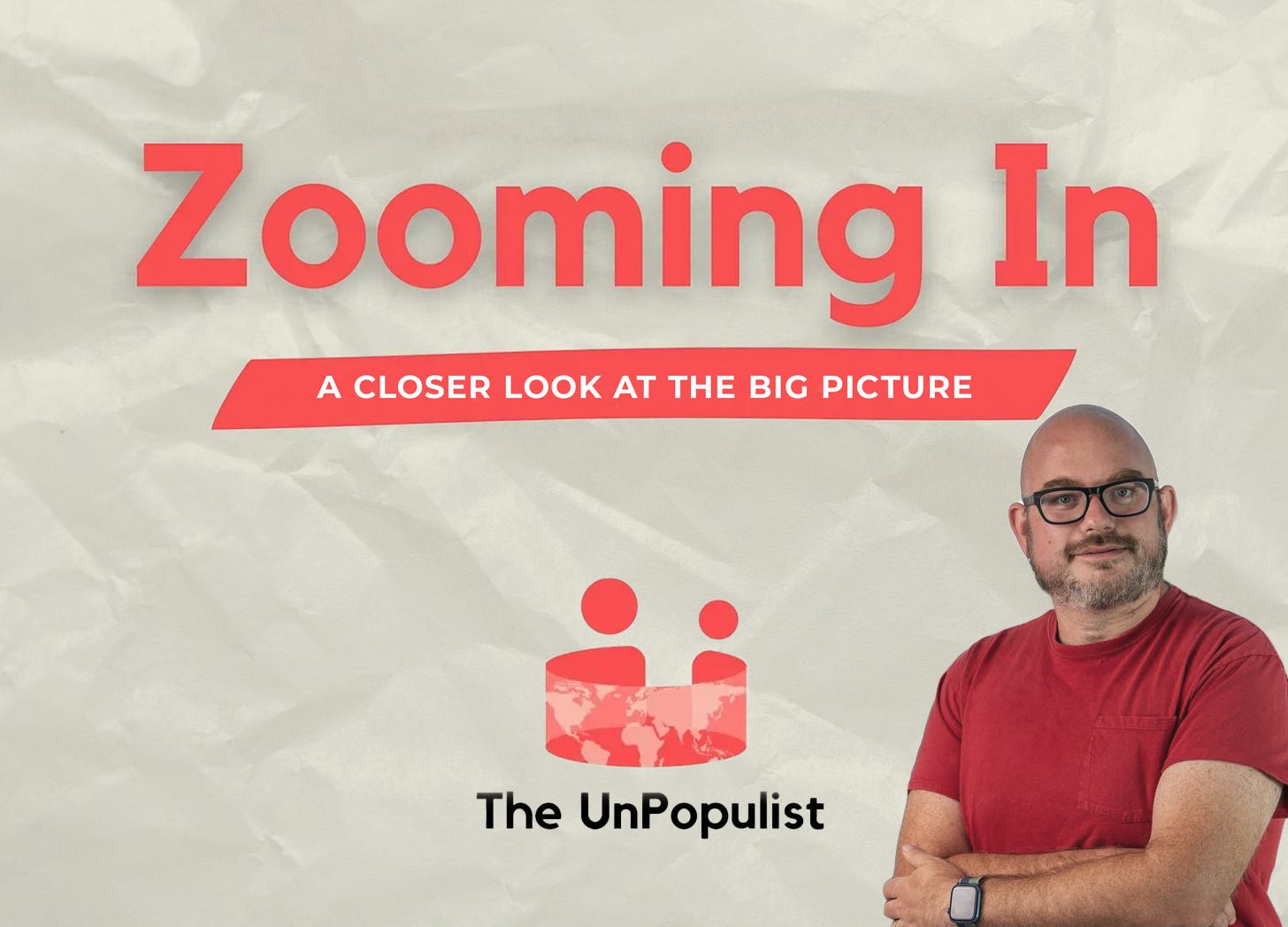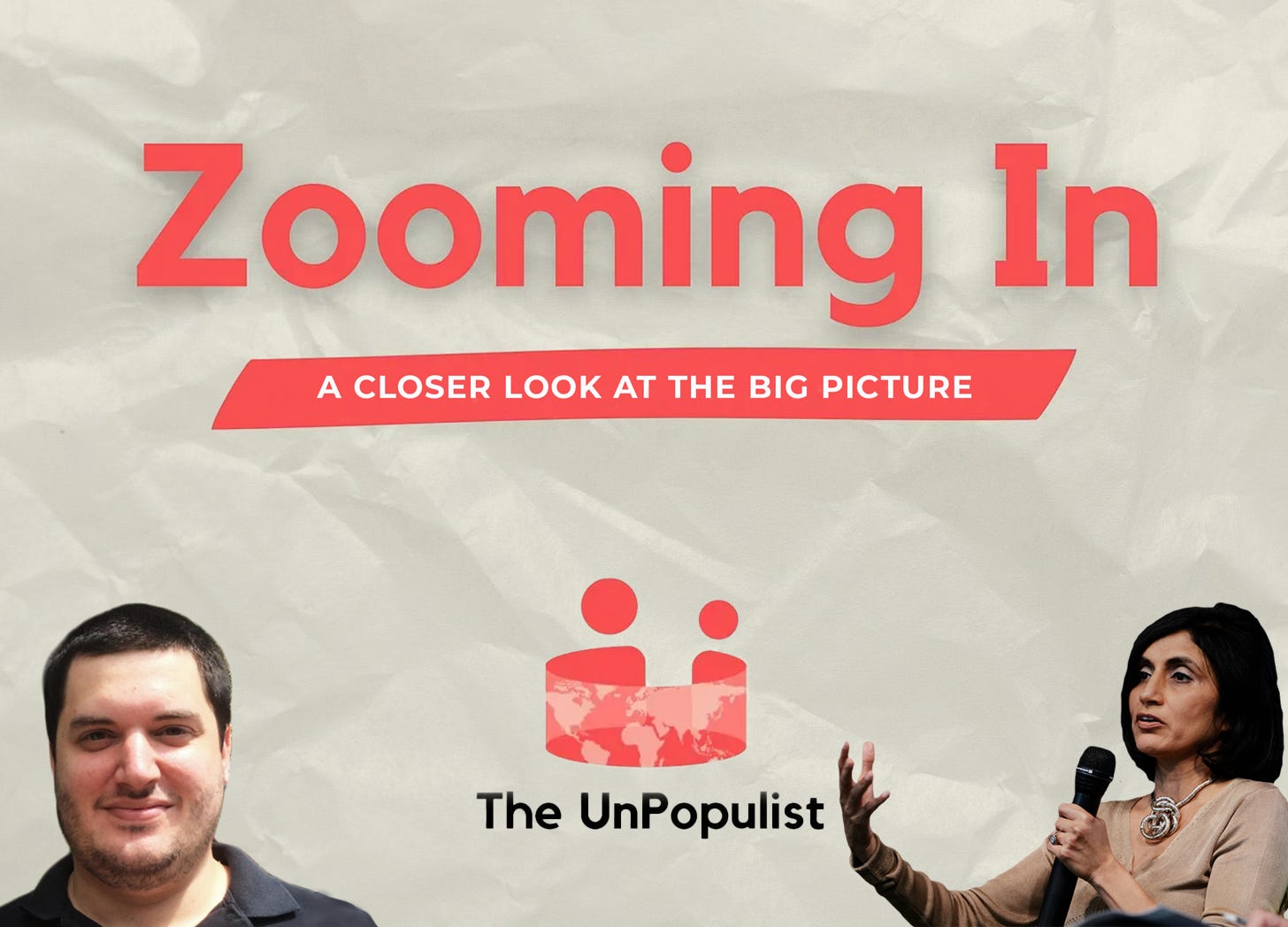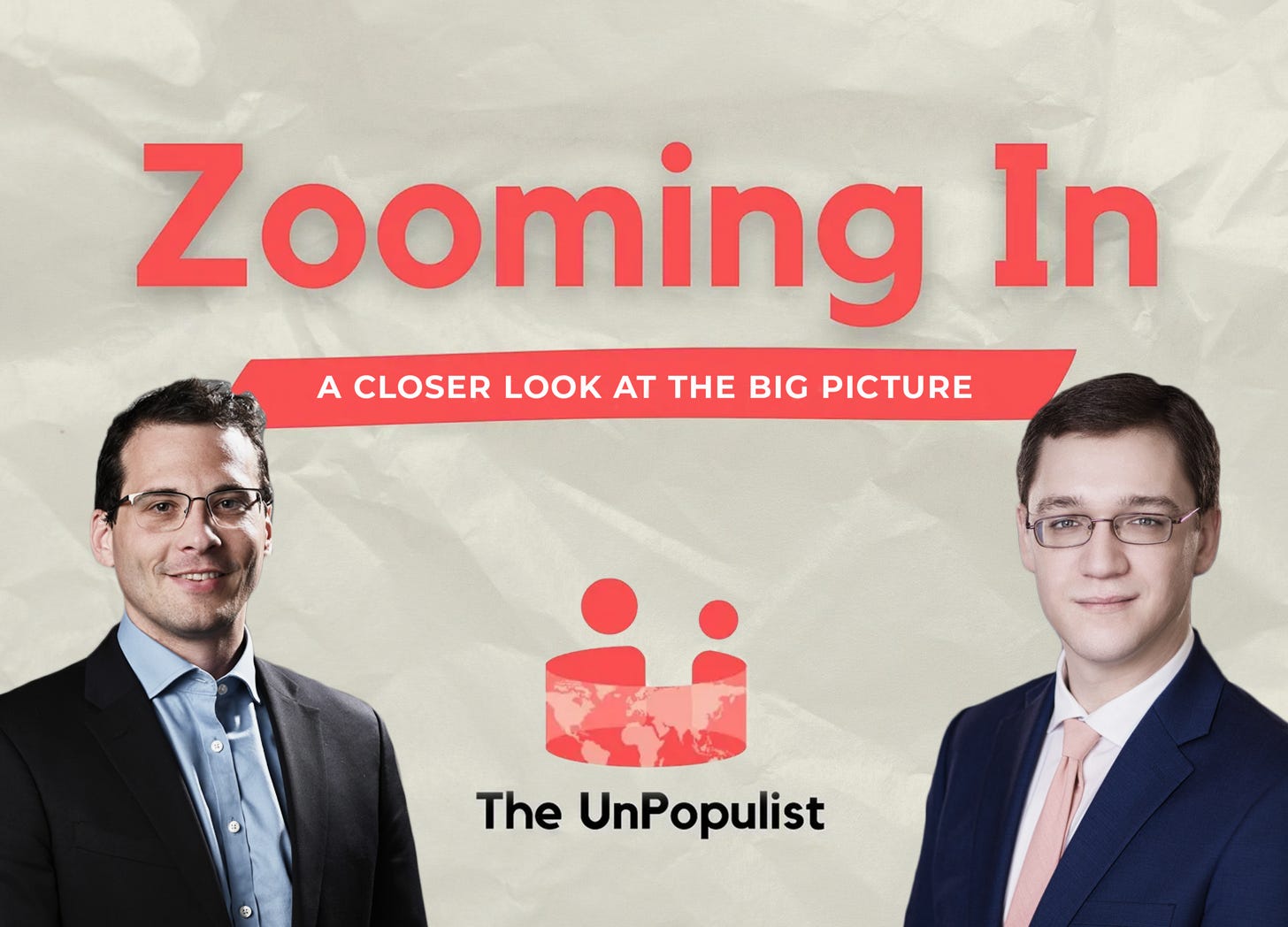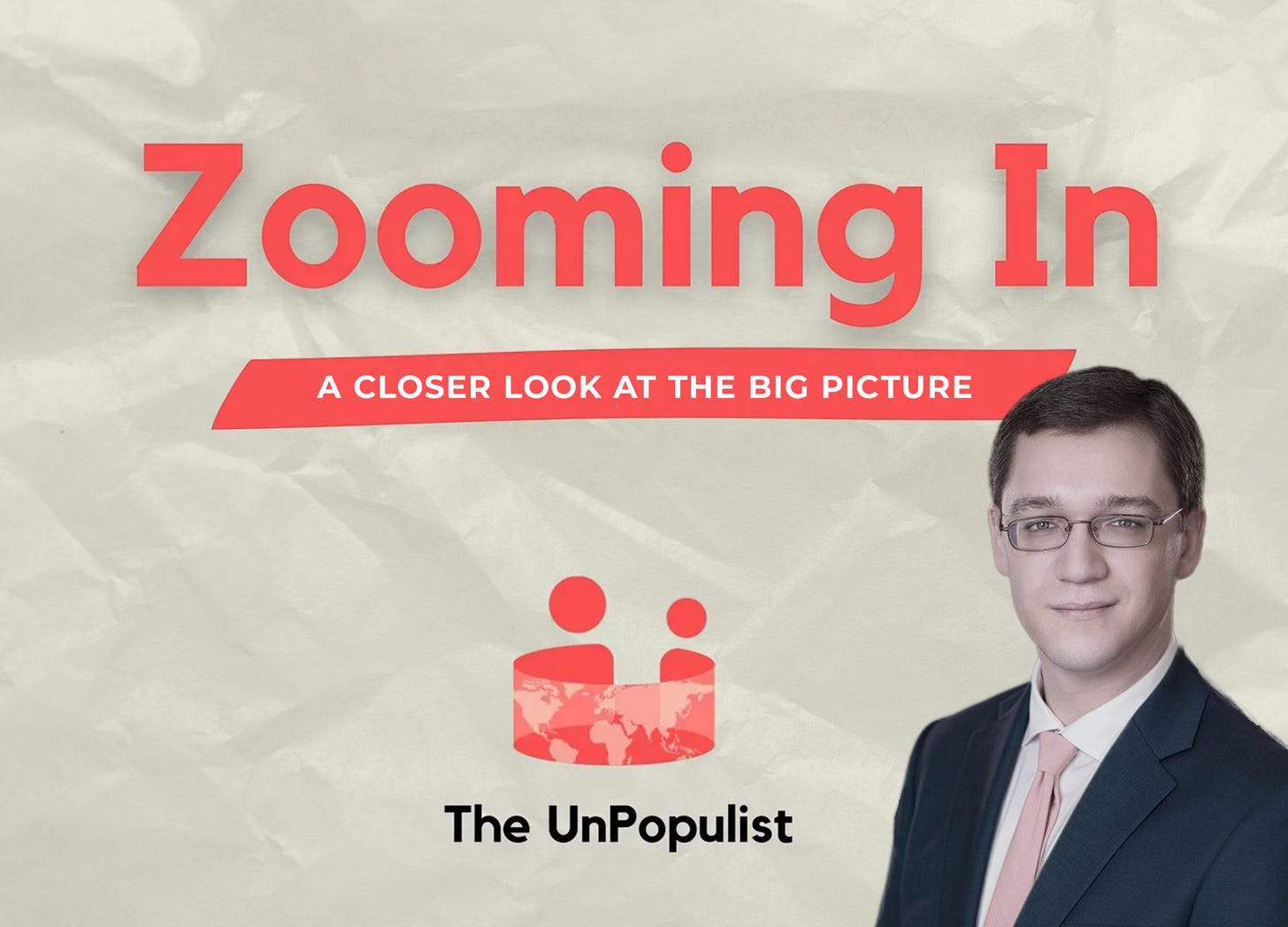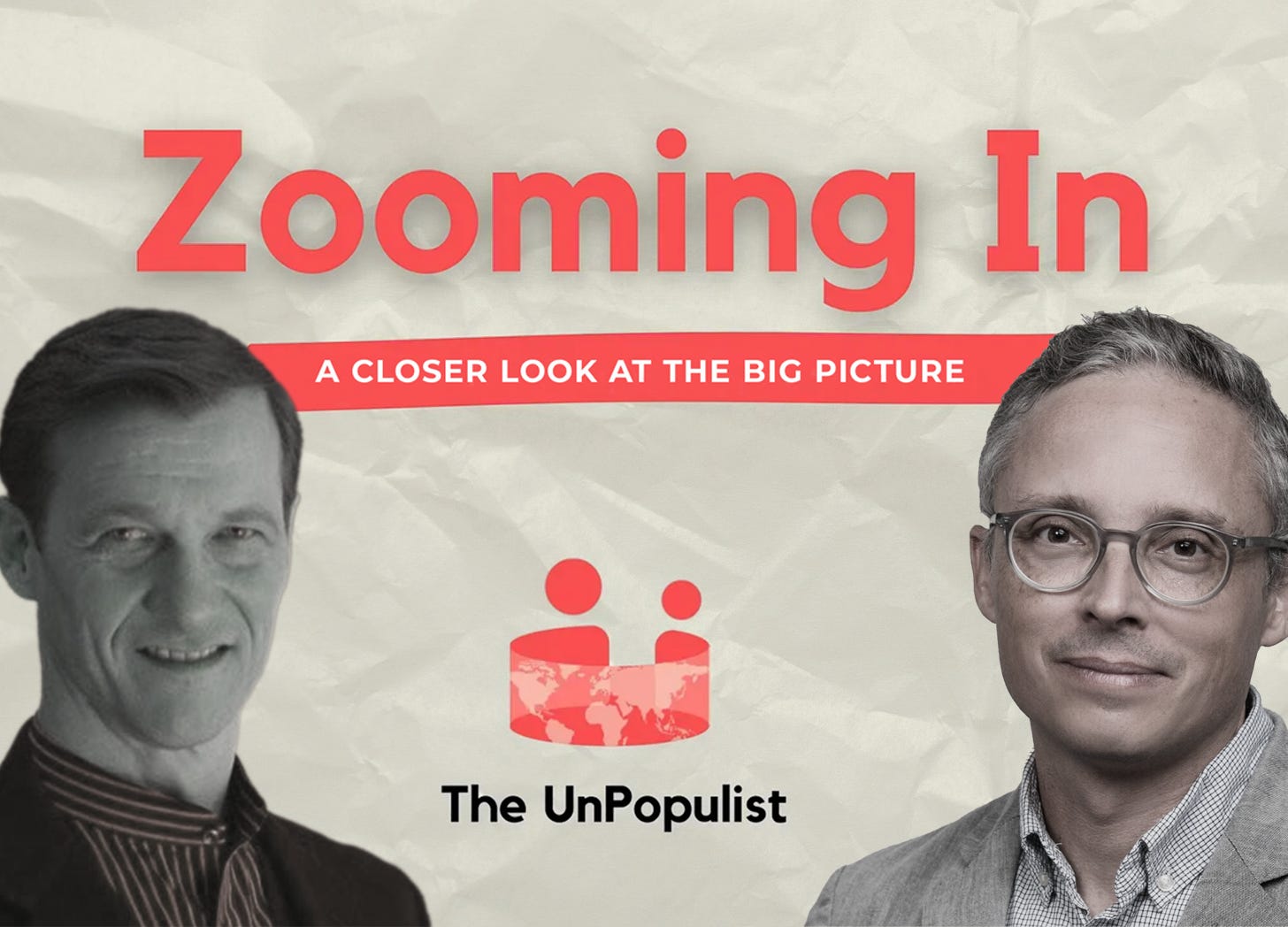Preserving A Liberal Society Requires Better Public Discourse: A Conversation with Berny Belvedere
Description
Listen to Zooming In at The UnPopulist in your favorite podcast app: Apple Podcasts | Spotify | Google Podcasts | RSS
Aaron Ross Powell: Welcome to Zooming In from The UnPopulist. I'm Aaron Ross Powell. Joining me today is Berny Belvedere, the new senior editor at The UnPopulist. We're going to chat today about the state of politics and the defense of liberalism.
A transcript of today’s podcast appears below. It has been edited for flow and clarity.
Aaron Ross Powell: Berny, let's maybe start with a bit about you.
Berny Belvedere: Thanks, Aaron, for having me on. I'm really stoked to be here. So, I was born in Buenos Aires, Argentina, which, just a funny thing about that: the literal translation of Buenos Aires is something like good air. But really, I think, the key idea that that name tries to get across is something like friendly skies. It's the capital of Argentina. I didn't get a chance to know it too well—we left when I was four and a half, five-ish. We had an opportunity to become citizens really quickly here in the United States, so my parents took that opportunity and we went from Buenos Aires to Kansas City, Kansas, on the Kansas side of things. We're one of the few on the Kansas side of the divide. Then, for my high school years, we moved to Miami, Florida.
So those are the places where I've lived. It's an interesting mix of different types of arrangements and social configurations, but it's also colored my approach to the kinds of places that I feel like society can build well. I've taken my love for suburban America from Kansas City. Miami is an international metropolis, very big on sprawl in a way that I don't quite prefer as much. I like a more densely concentrated type of city. Buenos Aires is just sort of European in its flavor, but also combining South American aspects as well.
Those are the places I've lived. Intellectually, I've pursued both theology and philosophy at a pretty high level. I didn't get a PhD, but I went for graduate degrees in philosophy and in theology. In the past, I guess if we were in medieval times, it would have just been one field of study, but with the specialization of knowledge, it forced me to get a degree in each. Even the theology that I did was very philosophical in nature. I guess that [philosophy] would be my overriding interest. That's a little bit about my background.
Lots of other stuff we could also talk about, though not the focus of this show. I'm married, got three kids, love sports and music, but let's stick to the stuff that the people want to tune in and listen to us talk about.
Aaron: Your academic background is theology and philosophy, but you're now working as senior editor for a political journal, and before that, you were working on another political outlet. What's the connection?
Berny: I've always been drawn to political philosophy. Even when I studied theology, I looked into the different traditions and what they had to say about the different polities and how society should be arranged—that was always a really interesting avenue of thought for me. In terms of now working for a journalistic outfit as opposed to some think tank or something else, I decided toward the end of my graduate degree in philosophy that a career in academia wasn't for me. The reason is partly vain, I'll admit. It's also partly, I think, morally okay. The vain part is I wanted to be a part of a broader conversation. Unless you become a kind of academic rock star, your work isn't going to be read by many people, maybe your fellow faculty in the department where you work, but that’s it.
“We've got these structural features in place that complicate our ability to genuinely have good discussions and intellectually rich discussions. Same as it always was, but one hope, a techno-optimist hope early on, was that technology in the social media age would try to counteract that, but we're not seeing that at all.”
I wanted to be part of a bigger conversation, so I pivoted to journalism where I've been privileged to be able to publish at some big venues and people interact with your work. They send you messages. Your thought becomes something that then someone else takes into consideration. Then that advances the conversation in a way where you're fortunate enough to be a part of an ongoing discourse about a topic.
That always moved me, so I pivoted to that. I've been working in political journalism for a while. I founded my own venue, Arc Digital, in 2016, right before the election. Ever since then, I've been involved in online writing and editing.
Aaron: Both of us then come from this background of academic ideas and enjoying those kinds of ideas, discussing them, communicating them and so on and both of us ended up leaning more into the popular audience's side of things than the strictly academic. When you look out at either the job as a political journalist or the state of political conversation, what role do you see for these kinds of ideas? Because we're in this weird time when it seems like on the one hand, ideological ideas are more dominant than it feels like they were 20 years ago.
Particularly on the right, you're seeing the populist movement which has a much more ideological streak than the more bland Paul Ryan conservatism at least professed to have. On the left, you're seeing the rise of their own kinds of ideologies about the nature of power and privilege in society. These are the sorts of heavy ideas that we grapple with but on the other side of things, it feels like the interest in high-level conversation has declined. That politics has been taken over by id, that we have elevated politicians who don't just speak in soundbites but often speak in incoherent soundbites. How do we navigate that?
Berny: I think that's a great question. From the beginning at Arc Digital, one of my goals was to take higher-level thinking, to take academic work—and I had reached out to members of faculties and different scholars—and distill some of this higher-level thinking into something that's more publicly digestible. Because that oftentimes represents really good argumentation that if you can just package in a way that is more palatable to the masses, it could influence thinking for the better.
That's been, for a long time, a kind of holy grail for people with these sensitivities to stronger forms of arguments and intellectual discourse. This is the holy grail: Are you able to take some of the awesome stuff that's being published at the research level and show it to the masses in a way where they can be receptive to it and it can influence their thinking? I think that's a great approach that responsible publications ought to take. Some of their output should be scholarly stuff, again, made into digestible forms for the masses.
I tried to do some of that at Arc. The UnPopulist does that really well where we work together with scholars and with editorial assistance and guidance we help the work come out in a publishable form where people can read it and get a lot from it. I think that's a burden of publications today that want to make a meaningful contribution to the discourse.
We're up against it. You're right. We're up against a discourse culture now where the basest forms of political point-scoring have penetrated how you go about participating in it, and it has turned everything into an “own the libs” aesthetic or on the other side, on the flip side of that, whatever that might look like.
Interspersed throughout all the attempts at high-level discussions and thinking, you get a whole lot of nonsense—so much of it, in fact, that it can feel like you're under a torrential downpour of it. You can't ever get to the good stuff because your feed [is dominated by this] and the people you follow [are drowned out by brasher voices]. You and I see this on the social media platforms that we're on. People are always complaining about the kind of deluge of crap that our feeds are now dominated by—and rightly so. It's partly a function of the way these spaces [are designed]—where tossing red meat to your followers is a way to increase engagement and increase your followership. Where not ceding a single inch to your opponents, even when you privately think that they've got something right, you know that if you do that, you're now subject to the blowback where people promptly unfollow you or they no longer see you as a reliable source for the position that they want championed.
We've got these structural features in place that complicate our ability to genuinely have good discussions and intellectually rich discussions. Same as it always was, but one hope, a techno-optimist hope early on, was that technology in the social media age would try to counteract that, but we're not seeing that at all.
Aaron: This sounds like a Marshall McLuhan, "the medium is the message" sort of


